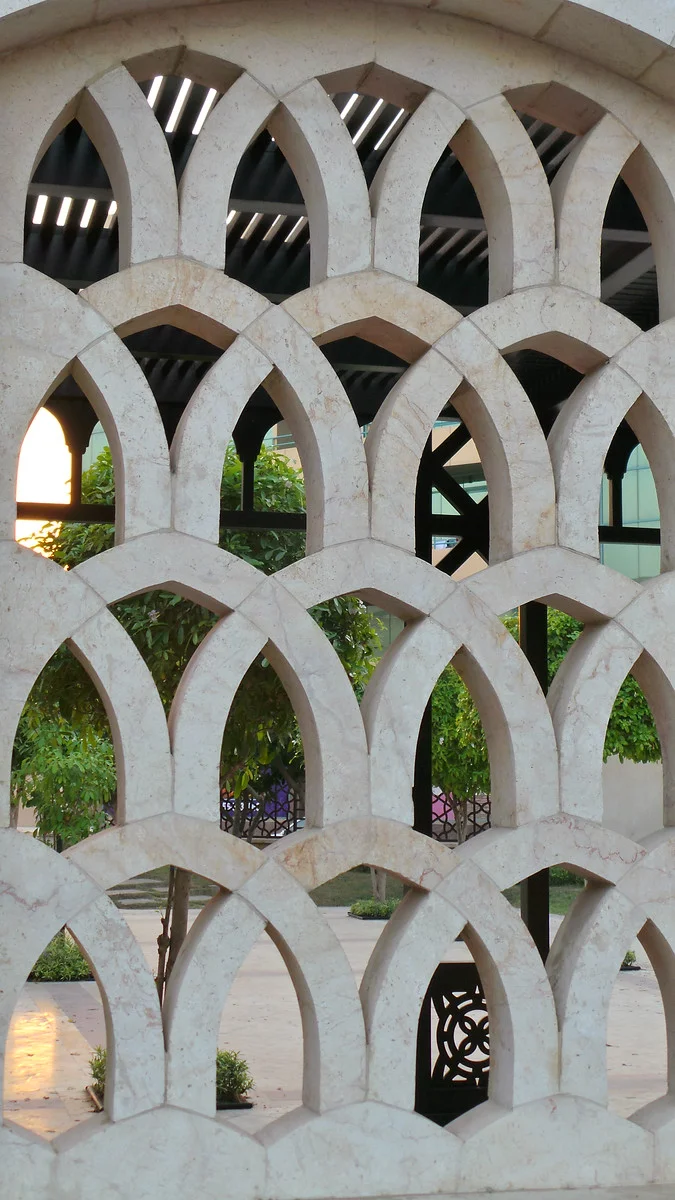These are the words of wisdom. They are what she cries out in the streets. And this is the heart of God. Not that we remain in ignorance, but that we embrace knowledge.
Viewing entries in
Christian Theology
This year, Navroz and Easter fall within a week of each other. Both are celebrations of new life and bear a remarkable similarity in symbolism.
There was a time when Ismailis were known as the 'batini', those who followed the batin, the inner, esoteric truths. Today, that tradition of delving beneath the outward meaning persists. Ismailis, led by the Aga Khan in their pursuit of the secret, deeper truths, acknowledge outward acts of devotion but give precedence to both inner symbolism and inner purity.
King Suleyman's hope for all of us reading this book of Proverbs is that we'd grow wise, grow in understanding and knowledge.
The general honour of our family has been restored. As individuals, though, something more is needed.
Jesus said, "Whoever acknowledges me before others, I will also acknowledge before my Father in heaven. But whoever disowns me before others, I will disown before my Father in heaven."
Knowing death was upon him, Jesus prayed,
"not my will, but yours be done"
That simple prayer secured for Jesus all honor and glory. He obeyed God to the point of death and in so doing, restored honor to the family of Adam whose shameful acts had brought death in the first place
“Over time, the number of people on earth multiplied. Yet God loved them very much and wanted them to have a relationship with Him. He gave them 10 commandments to follow. Remember God is perfect and holy, so we must be perfect and holy to live with him. The 10 commandments teach people how to relate to God and how to relate to people. Some of the commands were: do not worship other gods or make idols; honor your parents; do not lie, steal, murder or commit adultery. However, no one was able to obey all of these commands.”
God didn’t abandon Adam and Eve completely. When they had obeyed God they had been covered with His honour and felt no shame, even though they were naked. Now that they had lost God’s honour they saw their nakedness and knew their shame.
One day, the devil tempted woman to eat the food from the tree that was forbidden. The woman listened to the devil and ate the fruit. Then she gave it to her husband to eat. Both of them disobeyed God’s command. Disobeying God’s command is sin. God is righteous and holy. He must punish sin. God cast the man and the woman out of the garden, and their relationship with God was broken. Human beings and God were now separated forever.
However, do you remember the angels God created? One of the angels was very smart and beautiful. This angel became very proud. He wanted to be like God and to have the other angels to worship him instead of God. Only God deserves all the worship and service. Therefore God cast the disobedient angel, the devil, and the other angels who listened to him out of heaven. These bad angels are known as demons.
Adam and Eve were our great, great, great ... grandparents. They are our first parents. Their name is our name. Their shame is our shame.
Imagine your father was a traitor to his community, or your mother was the village prostitute.
God placed the man and woman in a beautiful garden to live. They had a very good relationship with Him and with each other. He told them to take care of the garden and enjoy everything. He gave them a special command: they could eat from every tree in the garden except one. If they ate from that one tree, they would be punished and die. The man and woman listened to God and had a wonderful relationship with Him in the garden. God created us to have a wonderful relationship with Him forever!
Adam and Eve lived in perfect community. They were safe and honored in the eyes of each other and also in the eyes of Almighty God. It was bliss, but bliss that didn't last.
Adam and Eve did not honor Almighty God as obedient members of His community. Instead, they listened to Satan, God’s enemy.
There is only one God, and He is the Most High God. He existed in the beginning before there was anything else. The Most High God is the Creator. He created everything on earth and in heaven and is all powerful over everything. When God began to create things, He just used His words. He spoke and everything came to being.
"In the beginning God created the heavens and the earth" - Genesis 1:1
"In the beginning was the Word, and the Word was with God, and the Word was God. He was with God in the beginning. Through him all things were made; without him nothing was made that has been made." - John 1:1
This is a summary story of the Most High God’s relationship with the world. This story is from a book called the Bible. Men did not make up the Bible. It is the word of the Most High God. The Most High God is more powerful than any ancestor, person, government or god that people worship. This story is true and reliable because it is the word of the Most High God.
"In the beginning, God ..." Thus the Bible opens. The implication is that _before_ the beginning, God was, too.
Before the beginning, then, the Most High God, He who is above all else, existed as the most honourable and most respectable being. He still is.
As we, Christian and Ismaili, begin to study and attempt to understand the words of the wisest human of all time, King Suleyman, we should start with his own introduction. In the opening to his book of Proverbs, he gives us a statement of intent:
Eid al-Adha, (known elsewhere as Eidi Korbon and meaning the 'Festival of Sacrifice') commemorates the story of Abraham's test of faith and the substitution of a ram in place of Abraham's son as a sacrifice to God.
The Qur'an offers a summary of the story in Surah as-Saffat:
The following is the story of Eid al-Adha, as told to the prophet Musa and recorded in the first book of the Tawrat, Genesis. You can also read an esoteric interpretation *here*
Genesis 22:1-19
After these things God tested Abraham and said to him, “Abraham!” And he said, “Here I am.”





















